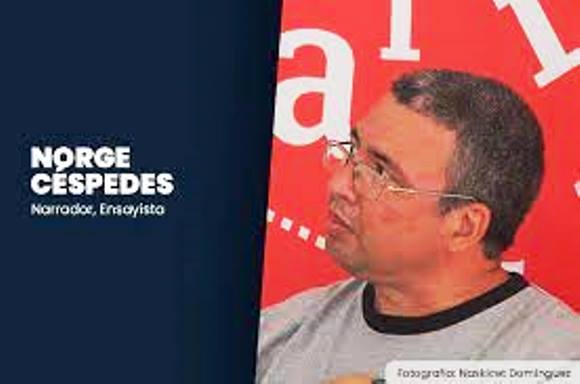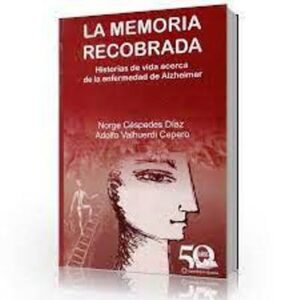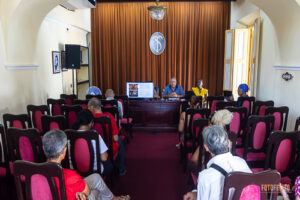Talking with the editor.


Although many are not aware of it and others overlook it, the work of an editor is fundamental in the process of literary production, according to journalist, writer and editor Norge Céspedes. «The editor is nothing more than the mediator between the author and the reader.
«He is also an entity that influences the various processes of the book from the moment it is gestated and once it reaches his hands. It is also his role to accompany it later on: the revision of the text, the correction, the design and the binding. It is a very broad task that a good editor performs».
It is clear that without the writer the book does not exist. It is the writer who writes, who gives the publications their personality, who shapes the spirit of the characters, describes landscapes and guides the destinies of situations.
However, behind all the creation, the good editor will expertly accompany each narration and dialogue, who will discard the unnecessary adjective, the misused adverb, the incorrect verb, the punctuation mark that contributes nothing. But that is not the end of their work.
«There are editors who only look at the superficial, the punctuation, for example, the spelling. It is important that this is right, but the revision of a text covers much more, from the content of the book, that the genre in which it is written complies with all the characteristics and takes a thorough examination in that sense.
«Depending on the conditions of the editor, then the work can be better. An editor always has to be active and work very hard».

Once the book is finished, the editor’s work is far from over, as he or she must also work on the promotion, marketing and distribution of the literary proposal. «It is a highly complex task, and it is a subjective one, although its development is influenced by the publisher’s knowledge load».
As in all aspects of life, the editor’s work has a positive side, more favourable and pleasurable for those who carry out this activity, and another, less so, which Norge sums up in a particular way.
«For me, the best thing about the editor’s job is the work itself. Editing involves reading books, and one of the things I like to do most in life is reading. If we continue talking about satisfaction, I get paid for doing it, it’s my job, so I feel complete fulfilment in that sense.
«It is very satisfying to influence the birth and growth of a book, to see it improve, the dialogue with the author who feels satisfied when he sees that you deliver a quality work, who notices how your book improves.
«The worst thing is when the book comes out with problems. An editor is never calm, he keeps an eye on the book to check it from end to end to see if there are any mistakes.
«There are always chances of imperfections, few books come out neat. What you have to do is try to get them as close to perfection as possible».

The guarantee of quality that their work promotes means that, in an inseparable pairing, author and publisher offer us the marvel of a new literary work. «It is important for the publisher to be clear about the relationship he or she establishes with the author and the book, as well as the place he or she occupies in this relationship.
«The owner of the book is the author and it is he who defines in every sense, the editor only suggests. There are very fussy authors who defend their texts to the hilt, there are those who are careless and also careful in every way, who are receptive and open to open dialogue.
«However, the publisher, regardless of these characteristics of the authors, has to be open towards him and establish a harmonious exchange in order to achieve a better result with that book».
Fernando Pessoa said that life is not enough, that is why literature exists. For Norge Céspedes, in addition to editing, writing became a necessity.
«The editor and the writer in my case complement each other. The Norge who writes requires the editor’s ability to scrutinise texts and thus, of course, to write better; in turn, the editor requires technical skills, the ability to work with language, to order a book in order to understand the texts he is revising».
Publishing is a vocational profession that is nourished by a love of the world of books. «In my case, there are authors who have published in other publishing houses and when they have come to ours, Ediciones Matanzas, which is where I have worked the most, or Aldabón, they say that in ours the work is rigorous in terms of revising the texts. When it comes to dealing with a text, the first thing for me is to understand it thoroughly».
The work for publishers, although often made invisible by those unaware of the intimacy of the publishing world, is not for those who carry it out as a mere professional option among many others, but the only one that satisfies their need to contribute to making those authentic chests of dreams that books are.
Written by Jessica Mesa.




